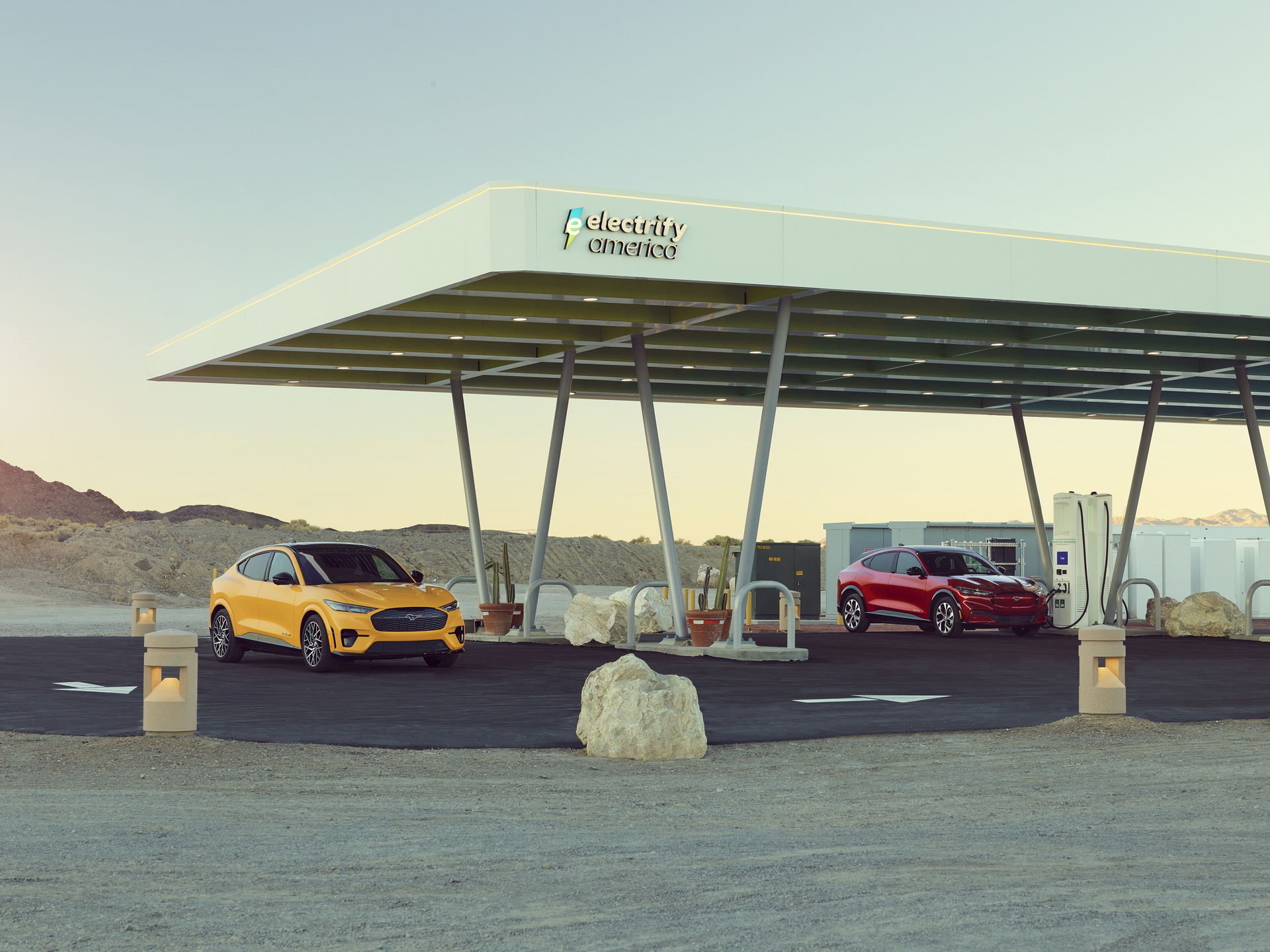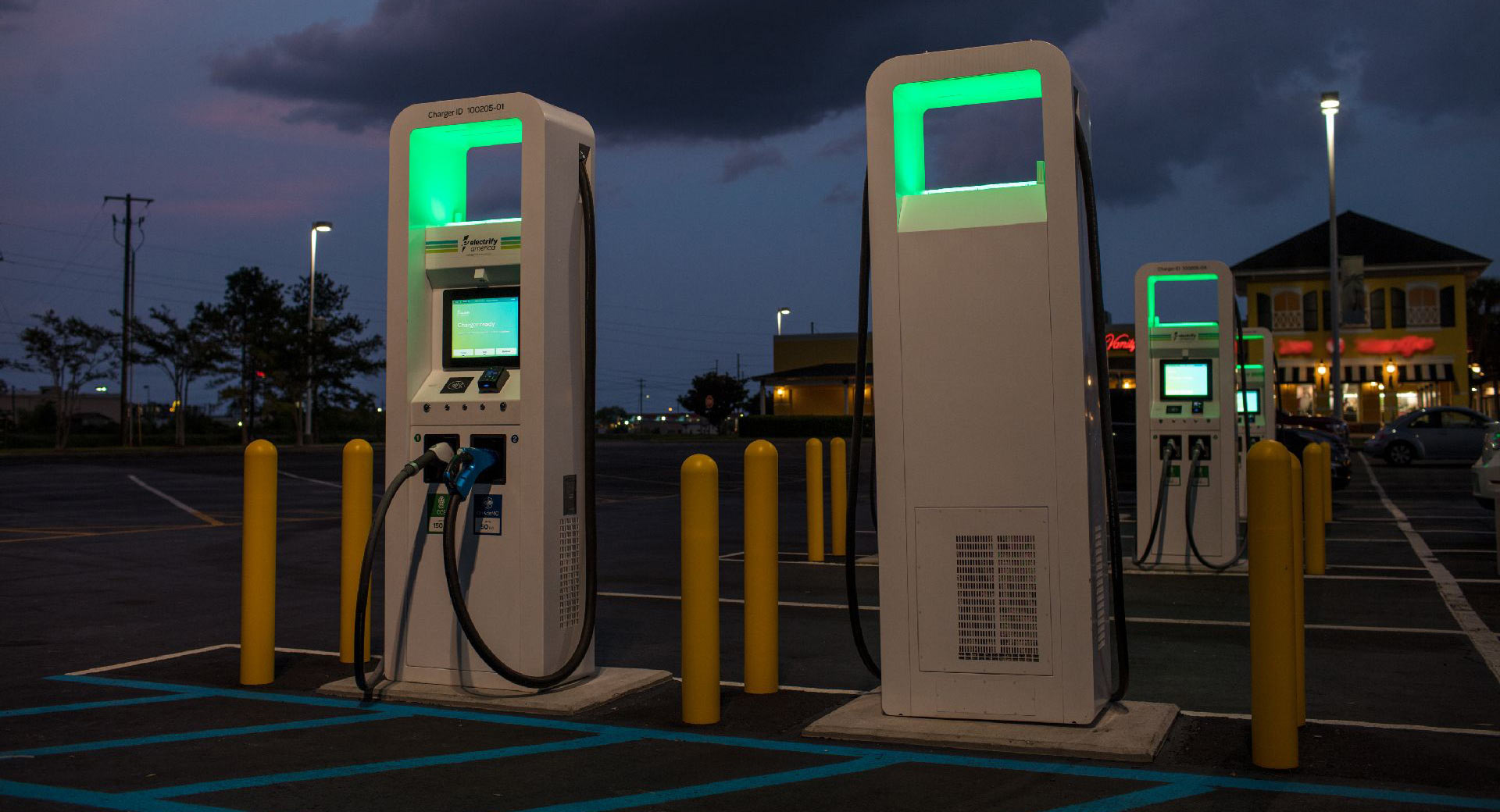Gasoline prices are reaching record highs and EV owners are starting to feel fairly smug about their engine-less purchase. ICE owners are feeling pain at the pumps, but they might still be saving money over their electric counterparts.
According to Fox Business, the average price for gasoline hit $5.57 per gallon in the second week of March in California. The national average is $4.325 (on Mar 14, 2022). Meanwhile, the price for electricity has remained largely the same for most states, thanks to heavy regulations.
While it might not cost as much per mile, the fact remains that it’s much quicker to fill gasoline or diesel-powered vehicle than it is to wait for an EV to charge. Fast charging station owners know this and can charge a premium for their services.
Depending on the vehicle and station speed, a Level 3 DC fast-charging station can bring the battery of some electric vehicles up to 80% in around 18-40 minutes. For this speed, Electrify America will charge you 43 cents per kilowatt-hour without a membership, and 31 cents per kilowatt-hour with a membership (at a cost of $4 per month).
However, that is the best-case scenario, and most folks will be stuck with the cheaper and slower option of 240-volt Level 2 charging, which can take eight or more hours to fill a depleted battery. These chargers are usually found at office buildings and at home.
Read More: Skyrocketing Nickel Prices Could Make EVs More Expensive
The cheapest Ford Mustang Mach E is currently on sale for $44,995, but a federal tax credit of $7,500 drops that down to just $37,495. The best possible range that the vehicle can achieve is 247 miles, and over a yearly average of 15,000 miles (24,140 km), the cost would be as little as $650 if you only charge it at home. If you use a fast charger, the cost would be $1,500 at 31 cents (plus a $48/year membership fee), and $2,100 for the most expensive 43 cents fast charge.
Ford also sells the similarly sized Escape Hybrid, which costs just $32,780 and can achieve up to 41 miles per gallon. Even with the highest-priced gasoline ($5.57 per gallon), the ICE-powered Escape would cost just $2,050. Non-hybrid models cost just $27,755 and achieve 30 mpg, resulting in a yearly cost of $2,800.
EV: $37,495 + $650/$2,100 = $38,145 – $39,595
Hybrid: $32,780 + $2,050 = $34,830
Gas: $27,755 + $2,800 = $30,555
Of course this is just an example, but for a person who only drives 15k miles (24,140 km) per year, the difference in savings might not be enough to justify the initial cost of EV ownership.
In the end, it all depends where you want to save cash, at the pumps (or chargers), at the dealership, or on the clock.




